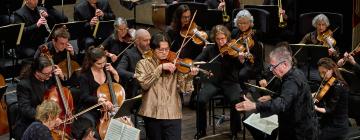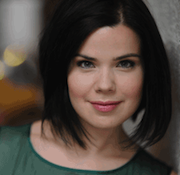Schwabacher Debut Recitals are tricky business. While they give young, oft-apprentice opera singers golden opportunities to stretch their wings and explore new facets of their artistry, they also demand that they use their voices in new ways, and explore a range of colors and depth of intimacy to which their still-developing technique may not be ideally suited.
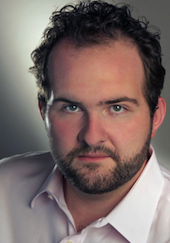
Thus, the first half of Sunday afternoon’s Schwabacher Debut Recital in the Meyer Sanctuary of San Francisco’s Temple Emanu-El, with the program theme, “About Love,” could have been reframed as “Ill Fit.” Presumably coached to sing love songs by Beethoven, Richard Strauss, Fauré, Stravinsky, Rorem, and Brahms, soprano Jacqueline Piccolino, a first-year Adler Fellow; mezzo-soprano Zanda Švēde, also a first-year Adler Fellow; tenor A.J. Glueckert, a second-year Adler Fellow; and bass-baritone Rhys Lloyd Talbot, a 2013 Merola Opera Program alumnus, found themselves, for the most part, woefully out of their element.
Instead of focusing on the emotions behind the words, the four young singers too often concentrated on vocal production and projection. The sounds they made were, for the most part, unfailingly lovely and engaging — ravishing, in the case of the velvet-voiced Švēde. But in an art form where voice alone is not enough, the love they were singing about got short shrift.
Take, for example, the recital opener, Glueckert’s rendition of Beethoven’s great Adelaide. There’s something endearing about a singer who always looks a bit like he just got out of bed, and clomps onstage in ridiculously noisy shoes. But once he opened his mouth, Glueckert shared a beautifully produced, strongly projected voice that never once got to the heart of the song.
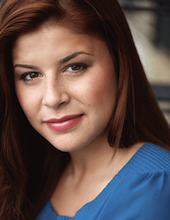
Pianist Mark Morash may have slowed artfully when his tenor sang of the mirroring brooklet, snow on the mountains, and golden clouds of dying daylight, but Glueckert resisted all opportunities to soften, sweeten, and caress the image of his adored Adelaide. Instead, he registered love-struck wonder in tones that sometimes sounded more akin to aggression rather than the rapid flutter of the human heart.
Piccolino brought far too meaty and mature a sound to three very early love songs by Richard Strauss. The charm and youthful springiness essential for the third song, Begegnung (Meeting), were absent. Nonetheless, she fared better than Švēde, whose oft-breathtaking tones sounded far too operatic for Fauré’s Cinq melodies “de Venise” (Five songs of Venice).
The shivers from the breeze that whirls through the moonlight of Mandoline (Mandolin), and the profound silence of En sourdine (Muted), were dismayingly voiced matter-of-factly. Švēde is hardly the only modern singer to dismiss French nasal sounds and careful attention to language in favor of a smooth line, but her inattention to sentiment and meaning, and absence of idiomatic lightness and subtlety were dismaying.
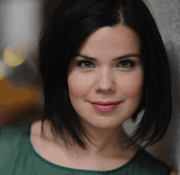
Young Talbot has a wonderful darkness to a voice that seemed better suited to portraying villains intent on stabbing tenors in the back than Stravinsky’s Deux poèmes de Paul Verlaine. Equally off-putting were spotty intonation and approximate French pronunciation. When he joined the other debut recitalists in five songs by Ned Rorem, his near-Verdian vocal richness made mincemeat of the simplicity of Early in the morning and seemed out of place in the ensemble rendition of Rorem’s As I walked out one evening.
Singing in her native language, Piccolino came into her own in Rorem’s great Now sleeps the crimson petal, and produced several perfectly placed, ideally sweet and warm high notes. Glueckert followed suit, with completely unaffected pronunciation and beautiful lyricism that spoke volumes in both his solo, “I will always love you,” and the aforementioned ensemble effort.
The overly resonant, metallic quality that the Meyer Sanctuary lends to voices did no favors to some of the ensemble’s tutti, full-voiced renditions of Brahms’ 18 Liebeslieder Waltzes. Accompanied by the four hands of Morash and first year Adler Fellow pianist and coach Noah Lindquist, the first 9 or 10 songs were also handicapped by Lindquist’s lethargic rendition of the top line. When the two pianists switched positions midway through, musicality finally came to the fore.

Nonetheless, our now relaxed singers had multiple opportunities to shine. Piccolino’s highs in Wie des Abends schöne Röte (Like the evening’s lovely red) were lovely, and she ended the song with ideal sweetness. Just as delicious were her heavenly duets with Švēde, where Piccolino’s pointed sweetness and the mezzo’s rounded warmth recalled many of the great soprano-mezzo blends of earlier generations (Sutherland/Horne, Caballé/Bumbry, Blegen/Von Stade for starters). Their duets were simply gorgeous.
Although Talbot was, for the most part, swallowed up in ensemble, he emerged tellingly and handsomely in the song, Ein dunkeler Schacht is Liebe (Love is a dark shaft). Glueckert sang Nicht wandle, mein Licht, dort außen (Do not wander, my light, out there) beautifully and softened nicely at the end.
Such fine singing deserved an encore. What it did not deserve was the ensemble’s unfailingly metronomic, one dynamic level rendition of the Midnight Quartet from Flotow’s Martha.
